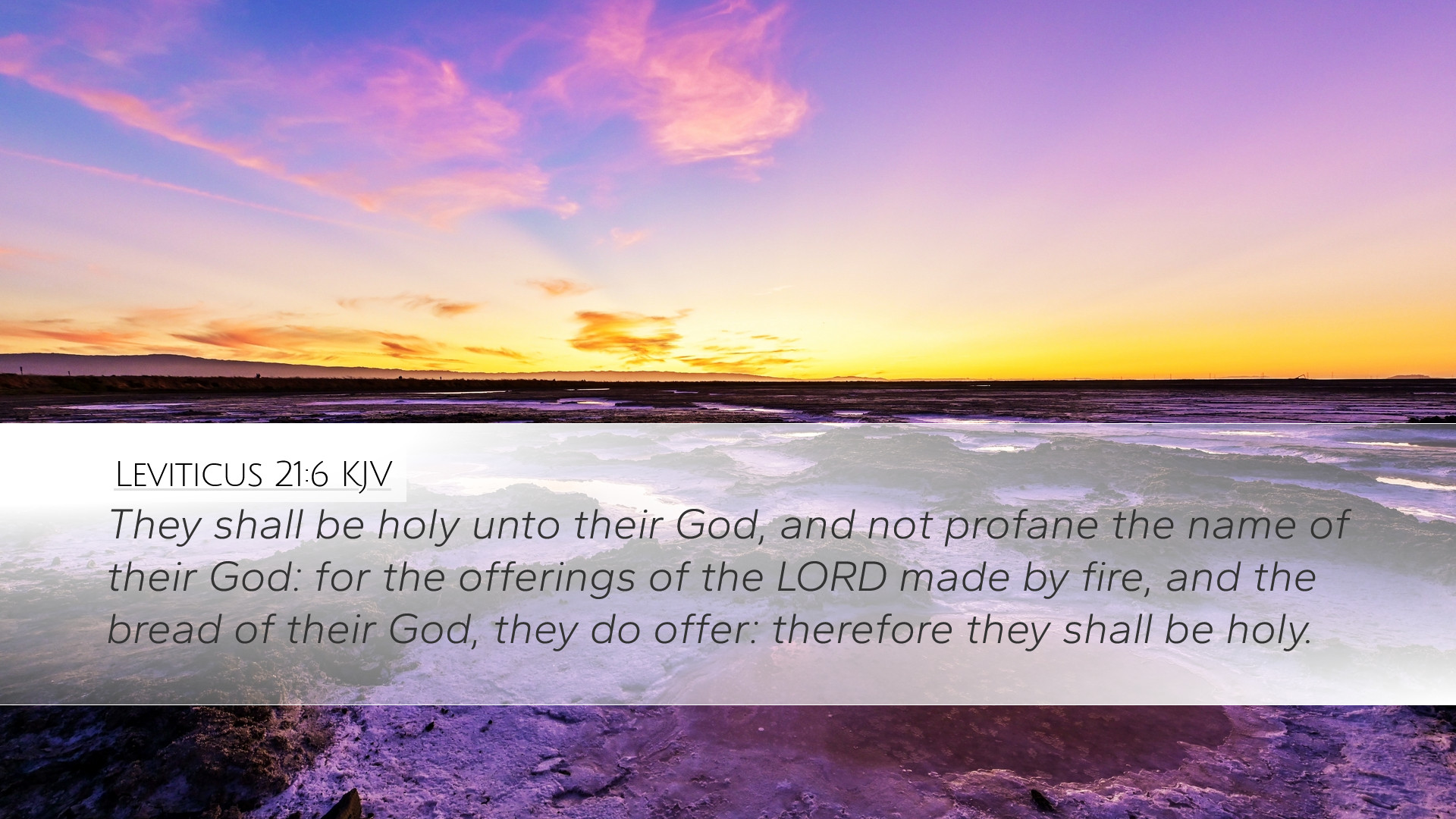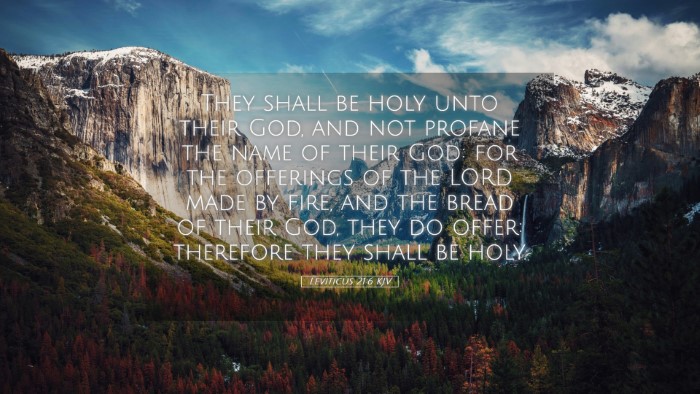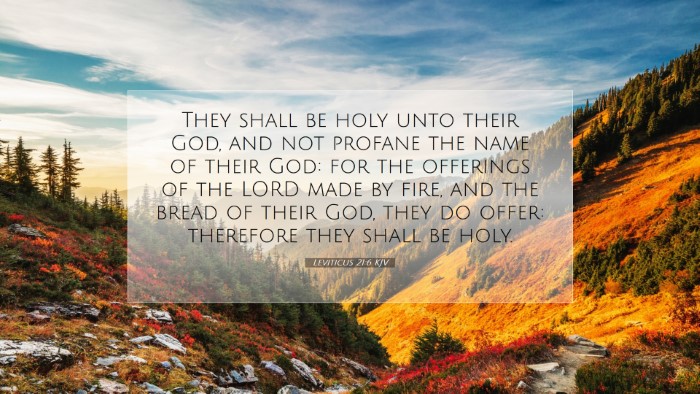Commentary on Leviticus 21:6
Text of Leviticus 21:6: “They shall be holy unto their God, and not profane the name of their God: for the offerings of the Lord made by fire, and the bread of their God, they do offer: therefore they shall be holy.”
Introduction
The Book of Leviticus serves as a legal and ritual guide for the Israelites, and chapter 21 is focused on the holiness required of the priests. This commentary draws from insightful interpretations provided by renowned public domain scholars such as Matthew Henry, Albert Barnes, and Adam Clarke, highlighting the essence of holiness in the lives of God's servants.
Understanding Holiness
Matthew Henry emphasizes that the call to holiness is not merely about external behavior but reflects an internal state of being that should characterize the entirety of their lives. Holiness signifies a separation from sin and a setting apart for God's purposes. The priests, as mediators between God and the people, were to embody this holiness as an example to the community.
According to Albert Barnes, the priests' holiness directly connects to their roles in offering sacrifices, which are critical acts in maintaining the covenant relationship between God and Israel. Their sanctity extends the idea of holiness to the people, underscoring that their conduct influences the broader community's approach to worship.
Profaning the Name of God
The phrase “not profane the name of their God” draws attention to the gravity and implications of the priests' actions. Adam Clarke notes that to profane is not only to desecrate but to fail in the duty of accurately representing God's character through their lives and actions. A priest who engages in unholy behavior not only brings shame upon himself but also misrepresents God to the people.
This reflects a broader theological principle: believers are called to reflect God's nature in a world that often distorts it. The responsibility weighs heavily on those in spiritual leadership, as they are seen as representatives of divine authority.
Offerings and the Bread of God
The commentary points to the significance of the offerings mentioned. Matthew Henry explains that the offerings “made by fire” symbolize giving of oneself entirely to God. This act is not just a ritual but denotes the sincerity of the worshipper’s heart. By recognizing the sacredness of these offerings, the priests reaffirm their dedication to God and the covenant relationship.
Albert Barnes elaborates that the term “the bread of their God” can be understood in a dual sense: it refers not only to physical provisions offered but also to spiritual sustenance that the priests partake in their ministry. Thus, the duties of the priests involve both offering and receiving, highlighting a reciprocal relationship with God where communion is central.
Implications for Modern Believers
This verse carries profound implications for pastors, students, theologians, and Bible scholars today. The call to holiness remains relevant; it prompts an introspection into how one’s life aligns with God’s standards. Adam Clarke encourages that individuals must evaluate their lives in light of their responsibilities, particularly in church leadership. A leader's moral integrity influences the faith community, and this truth resonates with the collective goal of glorifying God.
- Emphasize Personal Holiness: Each believer is called to pursue holiness, reflecting God's character in all aspects of life.
- Recognize Our Representation: One's actions and demeanor serve as a testimony to God’s nature. Maintain a commitment to authentic worship and ethical living.
- Engage in Meaningful Worship: Worship should stem from a heart that understands its sacredness. When engaging in ministry, remember the divine purpose behind each act.
Conclusion
Leviticus 21:6 serves as a powerful reminder that those called to serve in spiritual capacities carry the weight of representing God’s holiness to the world. This requires ongoing commitment to a life marked by righteousness, an understanding of the profound implications of one’s role, and a dedication to worship that is sincere and honoring to God. The insights from public domain commentaries provide a rich foundation for understanding this calling, encouraging deeper reflection and application among readers.


